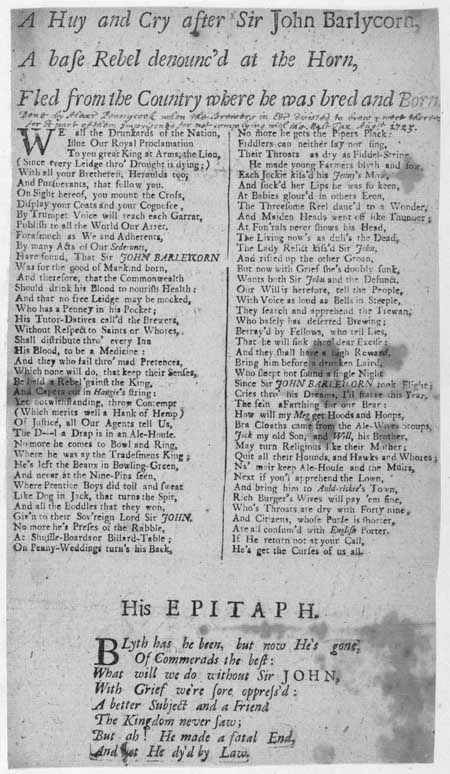Commentary
This ballad begins: 'WE all the Drunkards of the Nation, / Issue Our Royal Proclamation / To you great King at Arms, the Lion, / (Since every Liedge thro' drought is dying;) / With all your bretheren, Heraulds too, / And Pursuevants, that follow you.' As can be surmised from the surname, Barlycorn, this light-hearted ballad celebrates the manner in which alcohol oils the wheels of society. The character of Sir John Barlycorn is a personification of alcohol, and the ballad uses this symbol to show the heated response to the passing of the Malt Tax in 1725. Prime Minister Robert Walpole (1676-1745) imposed this hefty duty tax on Scottish ale, and this led to a number of riots. Such was the violence of one riot in Shawfield that the whole city of Glasgow had to pay a fine! Amusingly, the ballad-writer likens the effect of the tax to a drought, and imagines what a Scotland without alcohol would be like. Early ballads were dramatic or humorous narrative songs derived from folk culture that predated printing. Originally perpetuated by word of mouth, many ballads survive because they were recorded on broadsides. Musical notation was rarely printed, as tunes were usually established favourites. The term 'ballad' eventually applied more broadly to any kind of topical or popular verse.
View Transcription | Download PDF Facsimile
|
 |
Date published:
1725 shelfmark: Ry.III.a.10(099)
 View larger image
View larger image
|


